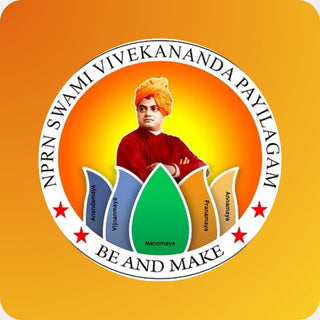In contemporary India, tradition and modernity often collide in the tender realm of teenage relationships. While arranged marriages remain a respected institution, today’s teens navigate a world of dating apps, social media connections, and evolving social norms. As parents, guiding open, respectful conversations about love, consent, and choice has never been more crucial. By blending cultural values with modern realities, families can empower teens to form healthy relationships without fear or secrecy.
The Changing Landscape of Love
India has long upheld arranged marriages as a cornerstone of family values. Yet, exposure to global media, peer influence, and digital platforms has ushered in new patterns of teenage attraction and dating. Studies show that a growing number of Indian adolescents express interest in dating before age 18, driven by peer normalisation and online platforms. While exploration of romantic feelings is developmentally normal, it can trigger anxiety—especially when parents and teens hold divergent views.
Common Parental Concerns
- Safety and Trust: Fear of unknown online matches, blind dates, and potential exploitation.
- Academic Priorities: Worry that relationships distract from studies and future goals.
- Cultural Boundaries: Balancing respect for family traditions with teens’ desire for autonomy.
- Emotional Immaturity: Doubt about teens’ ability to handle rejection, consent, and conflict.
Blanket bans or harsh reactions can backfire, driving teens to hide their experiences and take greater risks. Instead, empathetic guidance fosters trust and equips adolescents to make informed choices.
A Framework for Meaningful Conversations
1. Cultivate Open Communication Early
Begin age-appropriate discussions about friendship, respect, and boundaries by pre-adolescence. Normalise conversations about emotions, attraction, and consent during everyday interactions—while watching a movie together or on a weekend outing.
2. Co-Create Dating Guidelines
Involve your teen in setting rules—deciding the appropriate age to date, defining acceptable dating venues, curfew times, and whether group dates or supervised outings are preferred. Jointly agreed boundaries feel fairer and encourage compliance.
3. Emphasise Consent and Respect
Discuss physical, emotional, and digital consent explicitly. Teach teens to recognise and respect their own and their partner’s boundaries—reinforcing that “no” must be honoured and “yes” should be enthusiastic and informed.
4. Monitor Safely, Avoid Intrusion
Stay aware of your teen’s social circles and online activities without invading their privacy. Gently request introductions to their partner, accompany them to group outings, and arrange check-in calls rather than demanding constant updates.
5. Validate Emotions, Offer Empathy
When teens share relationship challenges—rejection, peer pressure, or emotional turmoil—listen without judgment. Acknowledge their feelings: “I understand this hurts. I’m here to support you.” Then discuss healthy coping strategies together.
Bridging Generations: Respecting Tradition and Agency
India’s arranged marriage system offers community support and shared values—but teens also deserve a voice. Parents can honour family traditions by clarifying that arranged marriages focus on partnership values—mutual respect, loyalty, and compatibility—while modern dating allows exploration of personal choice and emotional readiness. Emphasise that both paths seek lifelong commitment grounded in respect and understanding.
Handling Challenges and Conflicts
- Discovery of Secret Dating: Pause before reacting. Create a safe space to hear your teen’s perspective, validate their honesty, and discuss safety measures.
- Peer Pressure to Date: Reinforce self-worth: “You’re complete on your own. Dating should feel right, not forced by friends.”
- Exposure to Inappropriate Content: Set digital boundaries—age-appropriate filters, screen-time limits, and open conversations about online safety.
- If conflicts persist, consider family counselling or parenting workshops that focus on adolescent development and communication skills.
Moving Forward with Confidence
Conversations about love and relationships need not be awkward or adversarial. By nurturing trust, demonstrating empathy, and co-constructing clear boundaries, parents can guide teens through the complexities of modern love while upholding cherished family values. Remember, a teen who feels heard and respected is more likely to share their journey—both joys and challenges—with you. This collaboration builds the foundation for healthy relationships today and a respectful marriage tomorrow, whether arranged or chosen.
Sources
- Teen dating: A panel discussion of Indian parents and experts | ParentCircle: https://www.parentcircle.com/teens-dating-and-relationships-indian-parents-vs-experts-discussion/article
- Modern Love: How Parents Can Support Dating | Rediff.com: https://www.rediff.com/getahead/report/modern-love-how-parents-can-support-dating/20220523.htm
- What is Hurried Child Syndrome and What to Do About It | Times of India: https://timesofindia.indiatimes.com/life-style/parenting/moments/what-is-hurried-child-syndrome-and-what-to-do-about-it/articleshow/121430058.cms
- To Grow Up Healthy, Children Need to Sit Less and Play More | World Health Organization: https://www.who.int/news/item/24-04-2019-to-grow-up-healthy-children-need-to-sit-less-and-play-more
















